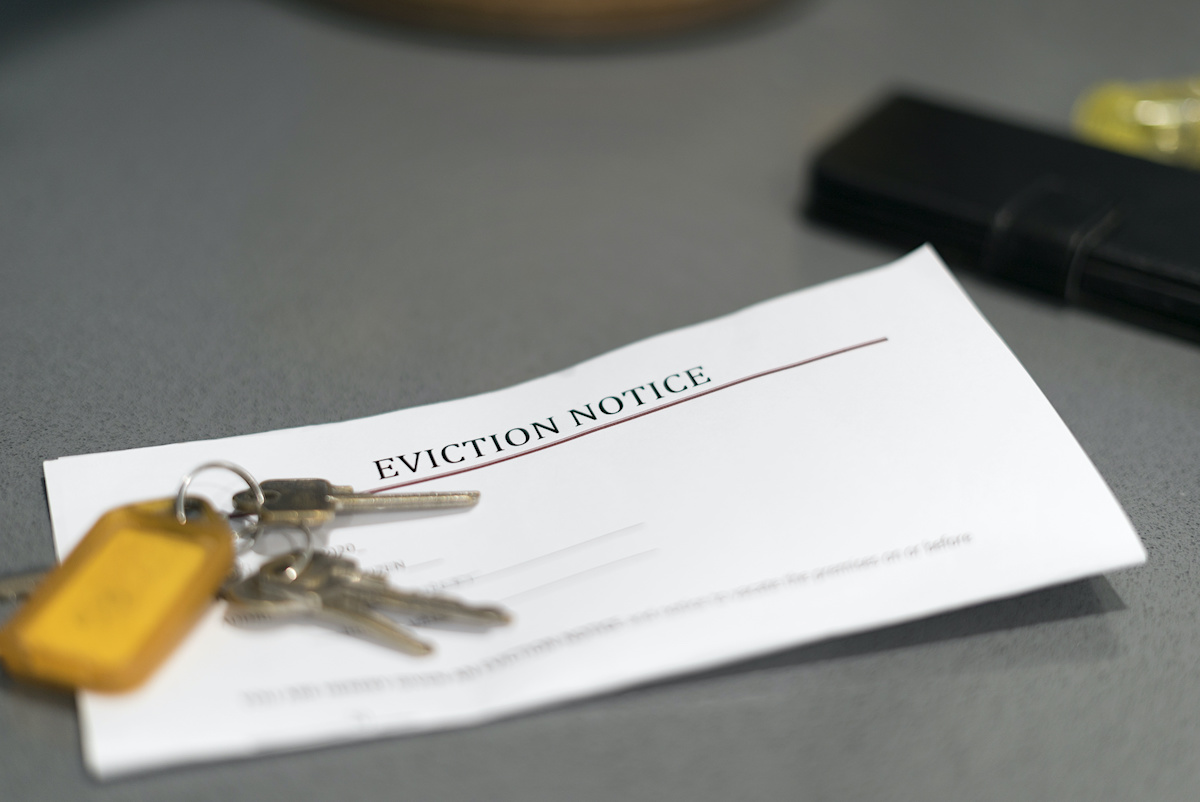
The fate of Georgia renters waiting on emergency housing relief aid hangs in the balance as the state agency managing a $550 million program will ask the U.S. Treasury Department to sign off on a plan to get money in the hands of those who need it to avoid eviction.
Meanwhile, nonprofits trying to help renters stay in their homes say the inefficiency of Georgia’s program and the lag time between application and a response is frustrating their efforts to help the struggling people who come to them.
The Georgia Department of Community Affairs plans to submit to the federal department before the Nov. 15 deadline its performance improvement plan after the statewide program fell well below the 30% federal pandemic rental assistance dispersal requirement. Still, frustrations are mounting for some organizations that help tenants and landlords apply for relief as their requests get tangled in red tape.
The state Department of Community Affairs-administered Georgia Rental Assistance Program dispersed more than $37 million as November rents are about to come due. That’s 7% of the overall $552 million of rental and utility assistance, delivering relief to more than 5,600 tenants and landlords.
The Georgia program missed the Sept. 30 deadline to get 30% of the federal relief money distributed, making it one of several dozen states at risk of the U.S. Treasury clawing the undistributed money back and sending it to local programs in Georgia or outside of the state.
State officials say they are now confident federal administrators will agree that the state program is following federal guidelines and that significant progress is being made in getting money out more quickly now for the program since it started in March.
Since late August, Georgia has doubled the amount of relief aid it distributed. So far 27,000 applications for assistance have been filed with the state.
“We have seen a month over month increase and we are trending to hit the highest amount of rental and utility assistance disbursed this month,” the DCA statement said. “Based on the continued improvement, and our success at promoting the program statewide through outreach efforts, we are optimistic that all funds will remain allocated to GRA in order to continue disbursing much-needed rental and utility assistance to our state’s landlords and tenants.”
As COVID-19 spread across communities in Georgia and beyond, federal grant programs were created to help renters pay their landlords and keep tenants safe from the virus. That included $46.5 billion approved by Congress to help renters who fell behind on payments during the pandemic. But states and local governments were left to create a distribution process and Georgia is among the states that struggled.
In addition to cushioning the financial blow for renters thrown out of work when COVID-19 shut the economy down, the rental assistance lifeline was meant as a public health need to keep people off the streets during a pandemic.
But once a federal eviction moratorium expired at the end of August, more pressure fell on state and local officials to speed up the delivery of the emergency aid.
In Columbus, St. Anne Community Outreach Director Katie Byers says she’s seen a slight increase in renters seeking financial assistance since the expiration of the federal eviction moratorium.
St. Anne’s is limited in its ability to assist people applying for relief through the state. The organization also uses local funds and private donations to help renters most at risk of experiencing homelessness make ends meet and help their landlords regain income streams.
“The good news is most of these families owe for a shorter time period – maybe one to three months, with many falling behind just one month,” Byers said. “Back three months ago we were seeing more families that were three to six months behind with limited resources to maintain their rent moving forward.”
The nonprofit organization is reluctant to work with clients who have not fallen far behind on their rent because it’s likely to take the state so much time to review the paperwork that it’s too late to keep a roof over their heads.
“Honestly, we didn’t feel we had the manpower to provide the service on a larger scale due to the amount of time that is required to assist the client/landlord, the frustration that was building between clients and landlords, and the amount of monies we were spending to help keep utilities on for families waiting or their applications to be processed,” Byers said. “If the applications could be processed within a month’s time frame, I would have been glad to allocate staff to process more applications.”
Under the Treasury Department’s terms, lagging programs administering the relief money can retain their remaining funding if they prove by mid-November 30% is distributed or 65% at least designated. Failing that, the Treasury officials want a new plan detailing how the money will be put to use. Georgia is on track to miss the 30% milestone, so it is betting on its plan to speed things up getting federal approval.
The Treasury Department will determine how much money to pull back from state and local governments by the difference between the amount distributed and the 30% benchmark.
As the eviction moratorium ended in September, the National Low Income Housing Coalition projected that four out of 10 programs in the U.S. were on track to lose funding.
“The high number of grantees that have not yet met the 30% benchmark indicate the ongoing need for programs to decrease documentation burden, increase application accessibility, and expand outreach efforts,” an agency memo stated.
To make the public more aware of the available assistance, Georgia is airing TV ads and extending other outreach. The state also removed a cap on the amount of assistance a household can receive, and the time period eligible for rent and utilities coverage has been extended from 12 to 18 months.
One of the hurdles many state and local governments faced resulted from cobbling together new rental assistance plans under brand new federal guidelines.
At first, the assistance was available through a hodgepodge of local government sources or the state. In late August, Georgia’s state-administered program expanded so renters in the largest metropolitan areas can apply directly to the state as another option.
As part of the federal relief grant, the city of Atlanta and the 10 counties surrounding it, Chatham, and Augusta-Richmond received $158 million to run standalone rental and utility assistance programs.
The latest Treasury Department reports shows the majority of Georgia’s 12 local rental assistance programs are more successful at meeting Treasury’s benchmark, with an average distribution rate of 64% at the end of September.
Atlanta along with Fulton and Henry counties got 100% into the hands of people eligible for assistance. The lowest reported percentages for local governments were in Cherokee with 24%, Clayton with 23%, and Forsyth County with 7%, according to federal data.
Housing experts continue to warn about the potential shockwave of thousands of eviction hearings moving through court systems since the moratorium only delayed many court proceedings that are now threatening to proceed apace.
The number of filings in Atlanta’s five largest counties of Clayton, Cobb, DeKalb, Fulton and Gwinnett has fluctuated over the last couple of months, but so far have not outpaced figures from the same period in 2019, according to the Atlanta Regional Commission’s eviction tracker.
However, the speed of eviction proceedings can vary widely depending on the jurisdiction that handles the cases. The willingness of landlords to wait on the process to play out has been mixed, St. Anne’s Byers said.
She said that she’s spoken with a number of clients who applied for emergency relief but had a judge rule in favor of an uncooperative property owner.
“I can’t say what is being done across the board, but my guess would be it could depend on the judge and the circumstances,” she said. “We have been actively calling landlords and are often successful in getting them to wait for payment instead of actually going through the eviction – as we tell them if they evict the client, then the client will receive the money.”






